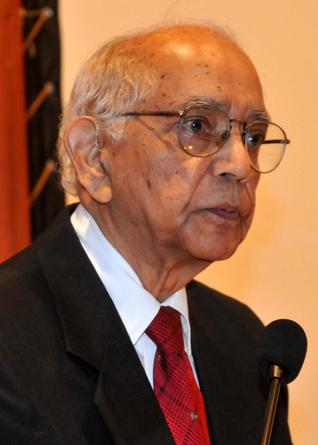C.R. Rao who Pioneered statistical concepts passed away
context
One of the most renowned statisticians in the world, Calyampudi Radhakrishna Rao, who spent almost all of his professional life in India, passed away on Wednesday in the United States at the age of 102.
About CR Rao
- Calyampudi Radhakrishna Rao, an Indian-American statistician, has been given the 2023 International Prize in Statistics, which is the statistical equivalent of the Nobel Prize.
- The prize is granted every two years to an individual or team who has made significant contributions to science, technology, and human welfare through the use of statistics.
- Rao’s work has influenced economics, genetics, anthropology, geology, national planning, demography, biometry, and medicine, among other subjects.
- His seminal 1945 study, “Information and accuracy attainable in the estimation of statistical parameters,” accelerated the development of contemporary statistics and its use in research.
- Rao was only 25 years old when he published this paper.
- He did his Ph.D. in 1946-1948 at King’s College, Cambridge University, under the supervision of Ronald Fisher, regarded as the father of modern statistics.
- One of Rao’s papers in 1948 offered a novel generic approach to testing hypotheses, now widely known as the “Rao score test.”
- As early as 1949, he contributed to orthogonal arrays, a concept in combinatorics used to create experiments with qualitatively good results.
- Rao spent four decades at the Indian Statistical Institute after joining there by chance after being unable to find a scholarship or a job elsewhere.
- His work has been lauded as influential and revolutionary, with some describing to him as “the person who did the most to continue [P.C.] Mahalanobis’s work as a statistician leader in India.”
- His contributions to statistics have had an impact on many sectors and are still relevant today, as indicated by his latest award.



